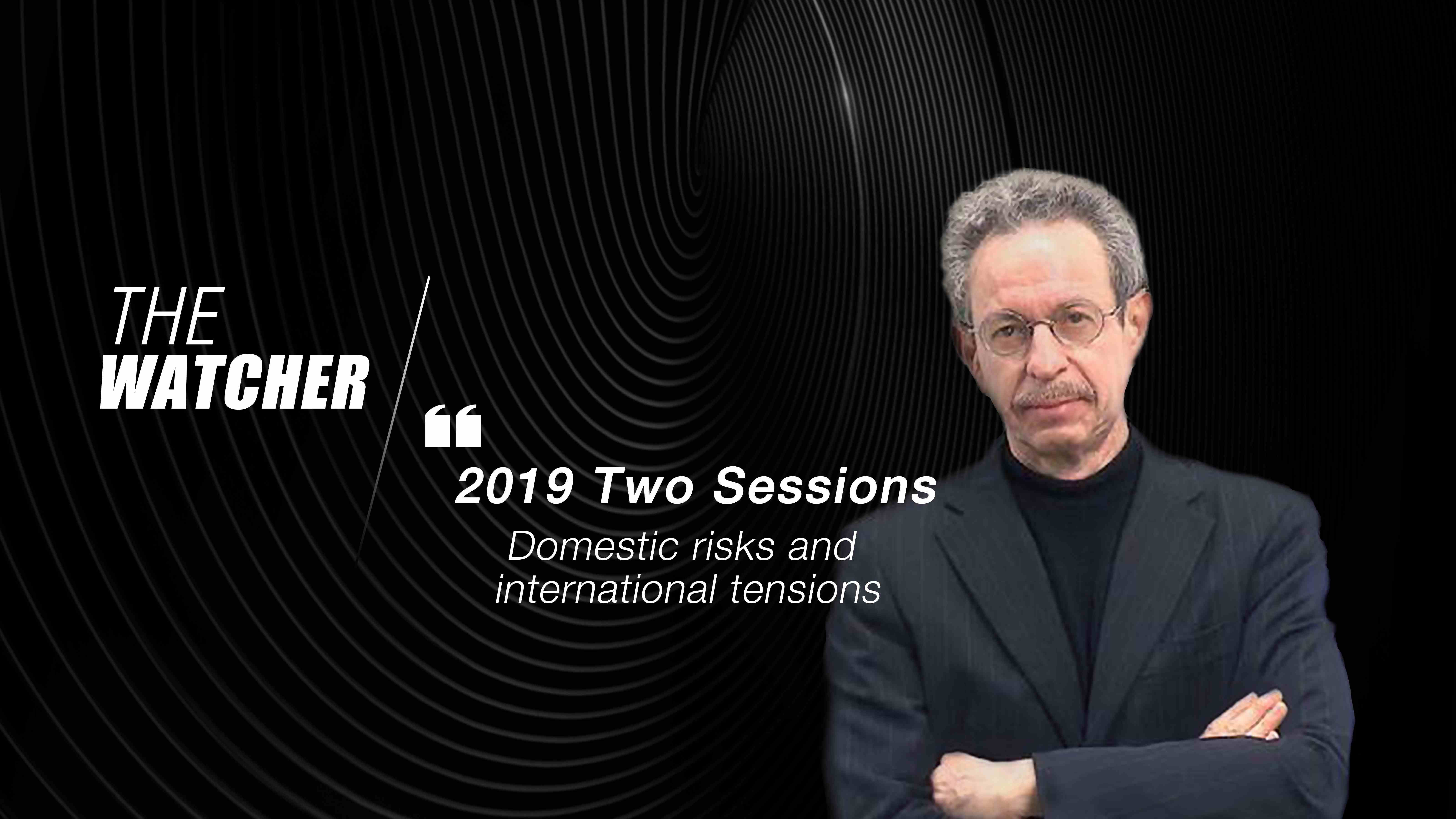
Opinion
08:13, 03-Mar-2019
2019 Two Sessions: Domestic risks and international tensions
Updated
16:56, 13-Mar-2019
Robert Lawrence Kuhn
03:14

I'm Robert Lawrence Kuhn and here's what I'm watching: China's Two Sessions, “Liǎng Huì' - the annual meetings of the Chinese People's Political Consultative Conference (CPPCC), the top political advisory body, and the National People's Congress (NPC), the top legislature.
They have a formidable domestic agenda, underscored by President Xi Jinping's call for preventing and defusing major risks: Political and ideological risks, Economic risks (especially financial risks), Science and technology risks, Social risks, Overseas risks, and risks in Party building.
Moreover, China is still fighting the three major battles - reducing risk, reducing pollution, and ending extreme poverty. At the same time, serious frictions in China-U.S. relations have come at an inopportune time for China, when the country's annual GDP growth rate seems headed for its slowest in decades.
China-U.S. rivalry has become far broader and more entrenched than mere trade imbalances, including geopolitical competition, science and technology competition, differing views on sensitive issues.
In addition, there are multiple international tensions – Middle East, Brexit and the Eurozone, South Asia, East Asia, Russia – China enjoys no immunity from the fallout. Amidst all these uncertainties, to ensure sustained economic development and social stability, Xi advised “thinking about worst-case scenarios.” That got my attention.
Speaking at the Central Party School in January, Xi alerted Party officials to “be on guard against black swans and keep watchful for gray rhinos”. “Black Swans” are disruptive events that no one anticipates, like the financial crisis of 2008; “Gray Rhinos” are highly probable, high impact yet neglected threats, obvious dangers coming at you that are hiding in plain sight, like the disaster of Hurricane Katrina in the U.S. and the collapse of the Soviet Union.
China says its people-centered policies mean optimizing the well-being of all its citizens. This includes watching out for potential disruptions, which could endanger stability and undermine economic growth. At the Two Sessions, I'm following how China addresses those multiple categories of risk. What changes are in store? What policies will be set?
I'm also following the Draft Foreign Investment Law, which officials say demonstrates China's determination to “unswervingly” expand its opening up to the outside world, not only ensuring its higher level of openness and legal compliance, but also strengthening the confidence of foreign investors in the Chinese market and benefiting foreign investors. That's a lot to keep watching – but that's what I'm doing. I'm Robert Lawrence Kuhn.
(If you want to contribute and have specific expertise, please contact us at opinions@cgtn.com)

SITEMAP
Copyright © 2018 CGTN. Beijing ICP prepared NO.16065310-3
Copyright © 2018 CGTN. Beijing ICP prepared NO.16065310-3